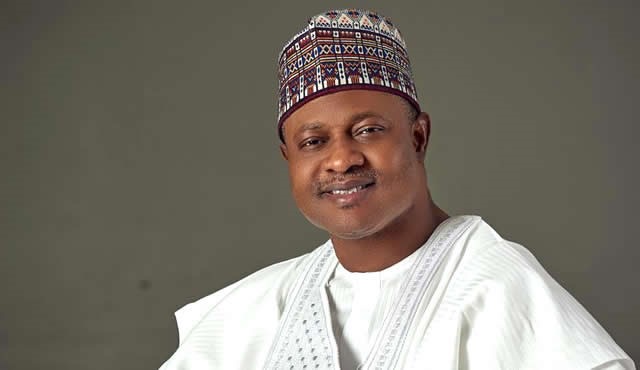Generally, across the globe, women have been at a disadvantage in political participation. In Africa, this can be attributed to a lot of reasons, ranging from a lack of political will by the female gender to an inadequate electoral framework, cultural and religious practices and beliefs, as well as financial constraints.
However, in recent times, with several evolutions that have changed the narrative, the numbers of women in politics have increased across African countries, thereby placing more women in positions of authority where they now have stakes in how they are governed.
This article will look at the level of participation of women in politics in Africa and how women are changing the face of governance and making impacts through their services.
Women are key players in society as they play strategic roles that help put their communities in shape for development. In the political landscape, they are gradually making an impact by lending their voices to critical issues that affect them and society at large.
In terms of numbers, as of 2022, Africa had 24 percent women representation in parliament and 21 percent in local government affairs, but ranked below the global average of 20 percent in women ministers in national cabinets, according to the Foresight Africa 2022 report.
While the figures are an increase from what was obtainable in the past, they are minimal and still below the required numbers because, given the huge population of women on the continent, they are expected to have equal participation in governance and decision-making processes.
With the marginal increase in their numbers, though at variance in the different African countries, comes more responsibility for women.
Some of the countries with high women’s representation in Africa at the moment with good representation to the advantage of their people are Rwanda, Senegal, South Africa, Namibia, and Mozambique.
Take Rwanda as an example; it has the highest women’s representation globally and in Africa, with over 60 percent of seats in the national parliament occupied by women. Aside from the increased number of women parliamentarians, Rwanda also boasts of having about 50 percent of women holding ministerial positions, making it the sixth country globally.
As much as women represent all their constituents, including men and boys, their increased participation has led to the passage of crucial bills and reforms targeted at improving the lives of women and girls in the country.
Some of such reforms include the law to alter the Civil Code to allow women to have equal inheritance rights as men, enjoy equal pay, advance consequences for gender discrimination and harassment in the workplace, and prevent violence against women and children.
Other areas where women in parliament in Rwanda have made appreciable progress are the passage of laws that tackle rural poverty and education, which are key to women’s development in the country.
This development has not only enhanced women’s participation in politics in Rwanda, but it is also serving as a good example for young girls in the country.
In Senegal, the story is also impressive; with 46 percent of women represented in politics, there has been considerable inclusion of more women in the governance system, as they have consistently been at the forefront of fighting bad governance and impunity in the system.
Taking it further to South Africa, which equally has a fair share of female representation in politics, their involvement has led to the implementation of laws that have given South African women freedom of choice as well as allowed for the enshrinement of certain socio-economic rights in the constitution.
Outside of the countries with huge female representation in Africa, In other countries on the continent, the few women in politics are doing their best to justify their representations and encourage more female gender into politics.
To achieve these goals, they work hard to make a difference in major issues affecting the continent that need more commitment from the political leaders.
In doing this and shaping governance systems, these women in politics bring all they have to bear in ensuring that policies are well implemented in all sectors of the economy to meet the basic needs of the people who voted them into power and ensure they live a better life.
For instance, in Sierra Leone, this can be authenticated through the exemplary leadership style of the Mayor of Freetown, Mayor Yvonne Aki-Sawyerr, who, through her developmental environmental initiatives, has been able to affect communities and people positively.
Being the first female elected mayor of Freetown, she showed so much dedication, ensured inclusive participation in programmes and initiatives, and brought to play practical perspectives on “how to get things done, which endeared her to the people and gave her a re-election to the seat earlier this year.
When we take it down to Uganda, we see the likes of Rebecca Kadaga, First Deputy Prime Minister and former Speaker of the Ugandan Parliament, who, through her offices( old and new), is leading a new narrative in governance.
Apart from gender-sensitive issues, Kadaga, as speaker of the Ugandan parliament, worked on enhancing the visibility of the parliament to make it more open to the people, encourage their participation through their proposals and views, and also allow the citizens to appreciate the role of their representatives.
She also led a campaign to push for the independence of the Legislature and other bills capable of changing the nation. Known as “Kadaga the fearless,” she stood against corruption in all its forms and remains an advocate of effective management of resources even as she serves in her
current role as the First Deputy Prime Minister of Uganda.
Even at the highest form of political office, the number one seat of power in a country, the president of Tanzania, Samia Suhulu Hassan, is doing her gender proud. Tagged as the face of reforms in Tanzania, President Hassan, who has spread her tentacles across all sectors, is focusing on human capital development to effect changes across the board.
Given all of these and many other endeavours of African women in politics, they are worthy of some accolades. On the other hand, it is expedient to state that a lot more can still be achieved if more women actively engage in politics.
Also, to get the best out of women’s participation, African countries need to consider aligning their legislation to be in tune with the target of achieving 50 percent of women in politics on the continent.


